Be’er Sheva is the main city in Israel’s South and home to a prominent university. As I had to revisit the university after three years from the first visit, I had a chance to take a closer look at its unique architecture and color palette. When I visited it for the first time, I wrote this blog entry. At the end of winter, it is like an entirely different place. The desert is covered in green and flowers are blossoming. In fact, more than that felt surprisingly different.
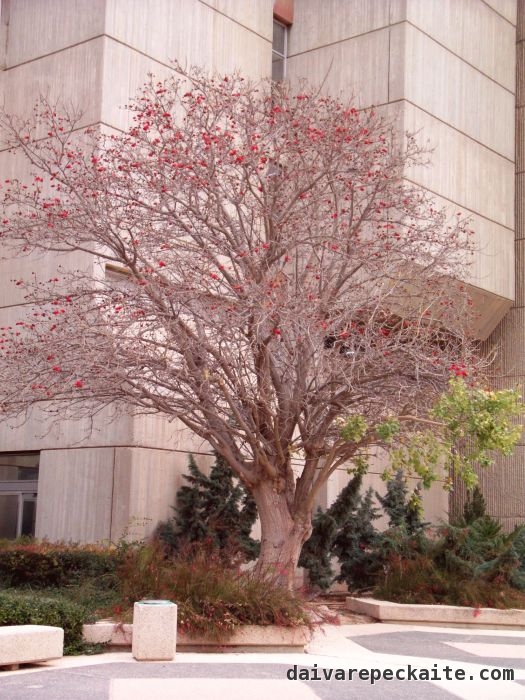
Of course, architecturally, the city still looked like carved out of the desert.
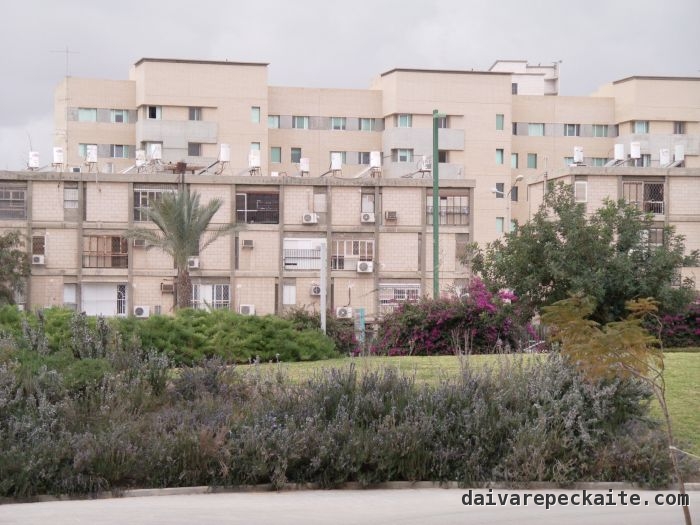
Including the fine curves and angles of the university buildings.
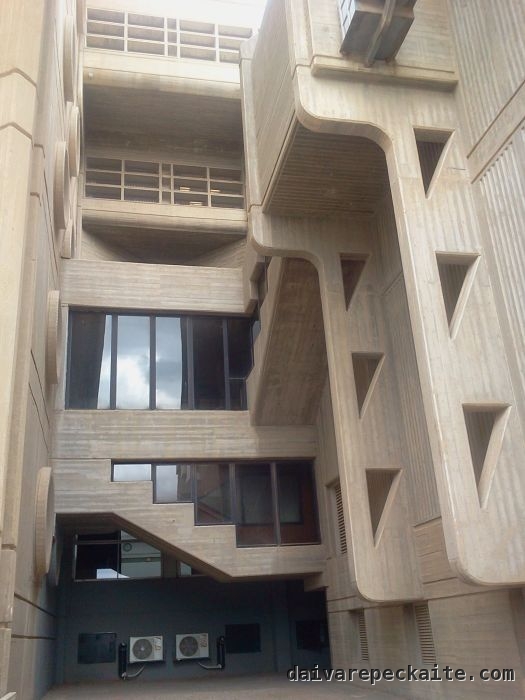
Just like back in 2009 when I visited:
Of course, being there, I would not miss going to the market. In 2007, a tourist saw this:
In 2013, I went to the market and saw this:
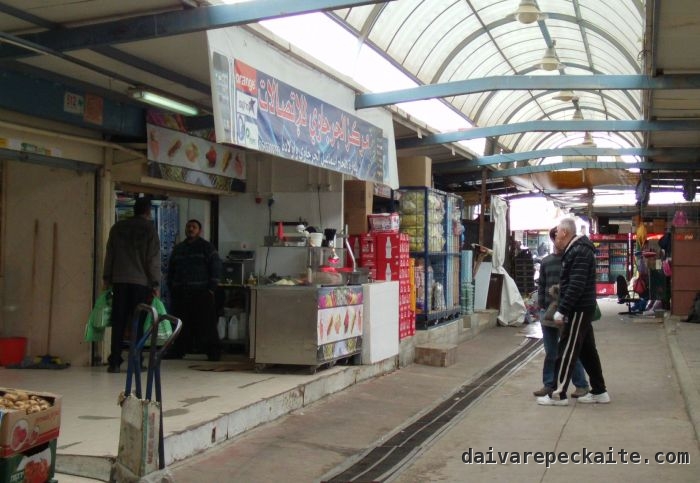
It felt much less like an ‘oriental’ city. Compared to what I saw in 2009, traditional Bedouin clothing was more an exception than a commonplace practice, and there were few fully covered women.
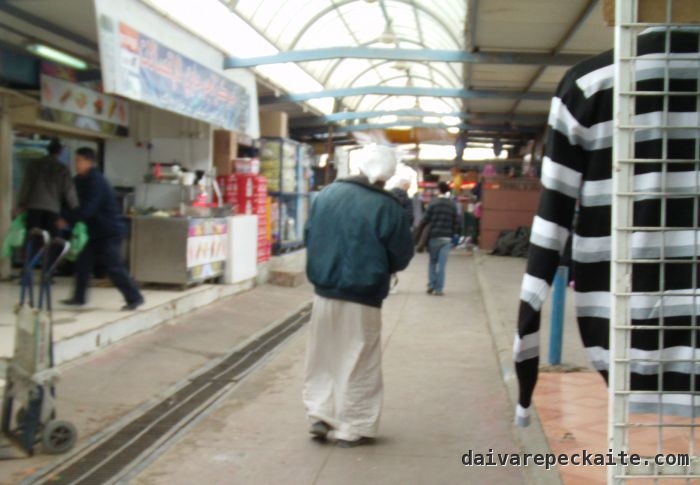
This might be related to various initiatives aimed against the Bedouin community in Israel, but so far I have no information about it. Possibly, they are working elsewhere.
Loose tobacco and who-knows-what in barrels is still sold here.
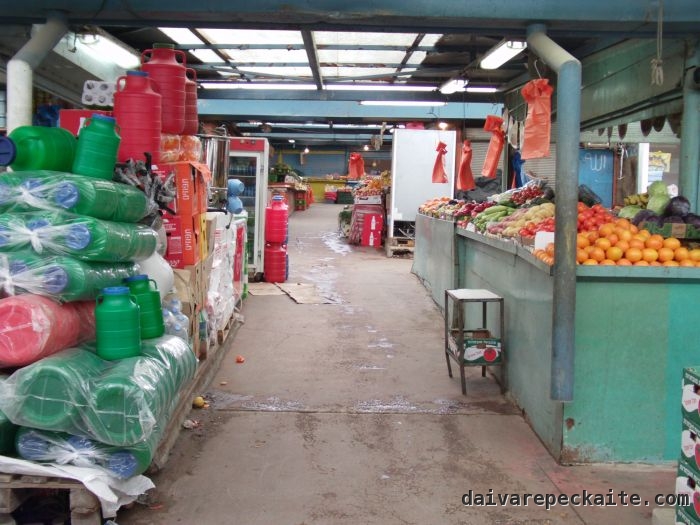
Most people in the marketplace spoke either Russian or Arabic, and used Hebrew mostly for interaction between those two groups. As I was buying some herbs, I heard that the man selling it spoke Russian, so I finished the ‘transaction’ in Russian. Having bought what I wanted (the market there is better than in Tel Aviv, or at least less busy and stressful), two things remained – to eat lunch and to buy coffee with cardamom for my parents. On the way to the place where I started exploring the market, I saw the same man who spoke Russian. I asked him where I could buy coffee. He understood it as if I wanted to drink coffee and made me a cup. We sat down to talk. The man had apparently graduated in Chemical Engineering, but after a heart attack lost his job and started selling vegetables on the market. He told me he was already a grandfather, and that he wanted to introduce me to one of his children. “Being alone in a new country is difficult,” he explained.
After saying goodbye to the Russian-speaking veggies vendor, I went on and saw a shop that had coffee beans. The person working there did not have ground coffee, but he called his friend and asked him, in Arabic, to show me where I can buy some. The friend took me to a Russian-speaker he knew and asked him to translate what exactly I wanted. They both walked me to a relevant shop. The Arabic-speaking man took the money and went away, and the Russian-speaker stayed with me. “Arabs will always try to rip you off,” he warned. “Everyone in the market would, seeing that someone is not local,” I responded. The man appeared to be a guest-worker. He was unhappy with Israel, but found it difficult to leave and try himself elsewhere. He took me to a shawarma shop, run by several young Arabic-speaking men. “They are an uneducated nation, the Arabs” the guest-worker said. “Why so?” I provoked him. “They leave school after 8-9 years and prefer to work on the market, so that they learn how to make money. They stay on this kind of level forever.” He was, however, very friendly with the young men. “Have you learned Hebrew?” I asked. “Of course, no problem with it,” the man assured. “And Arabic?” I asked further. “What do I need it for?” – “Well, here they always seem to appreciate if someone outside their community says a few phrases in it,” I suggested. “I know a few basic phrases,” the guest-worker admitted. The young men, at the shop returned to give me extra fries and pickles.
On the way back to Tel Aviv, I listened to a young woman, probably a student, speak Arabic with more Hebrew words than I’ve ever heard an Arabic-speaker use. Be’er Sheva seems to be turning more transcultural than multicultural.

